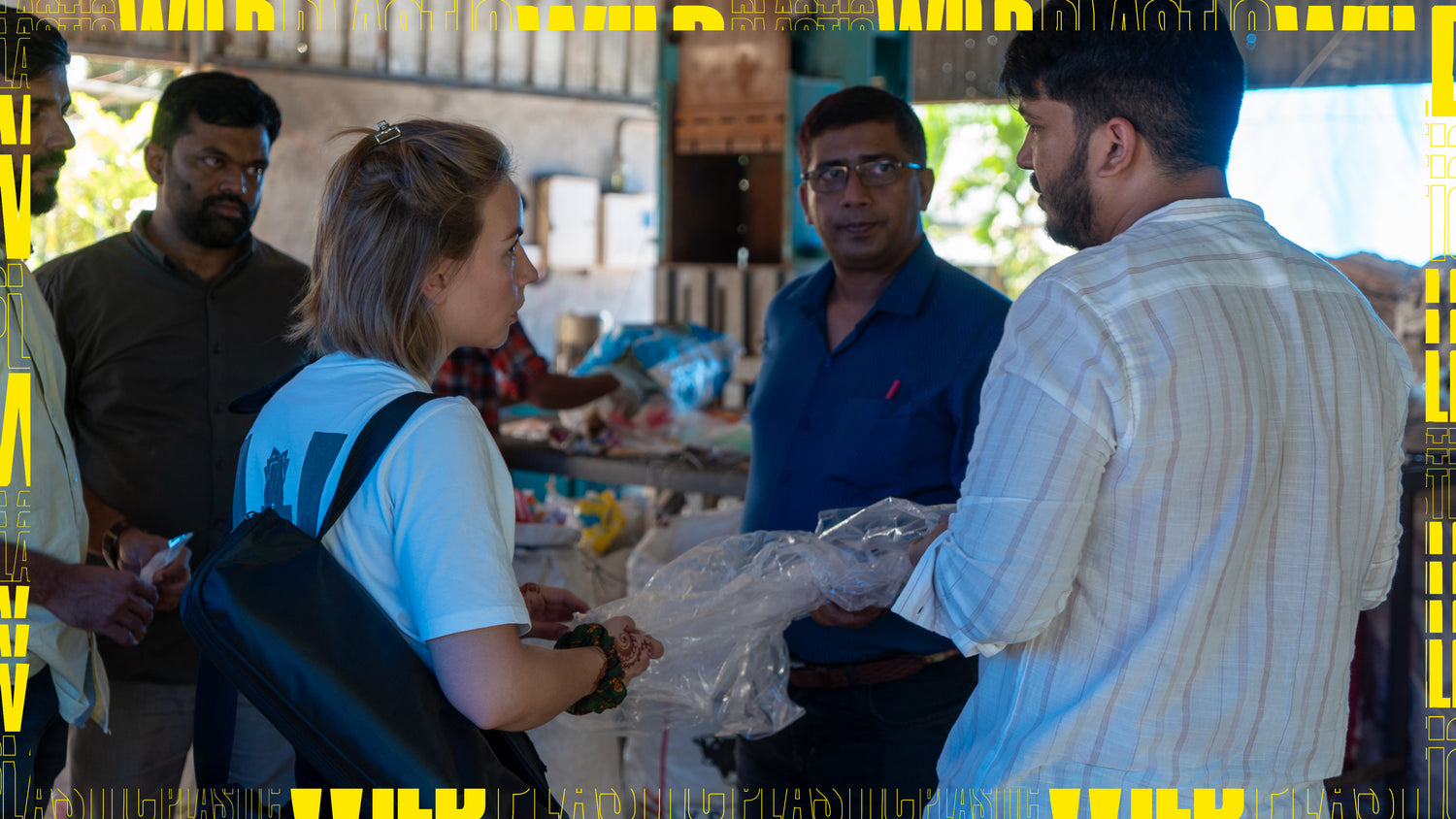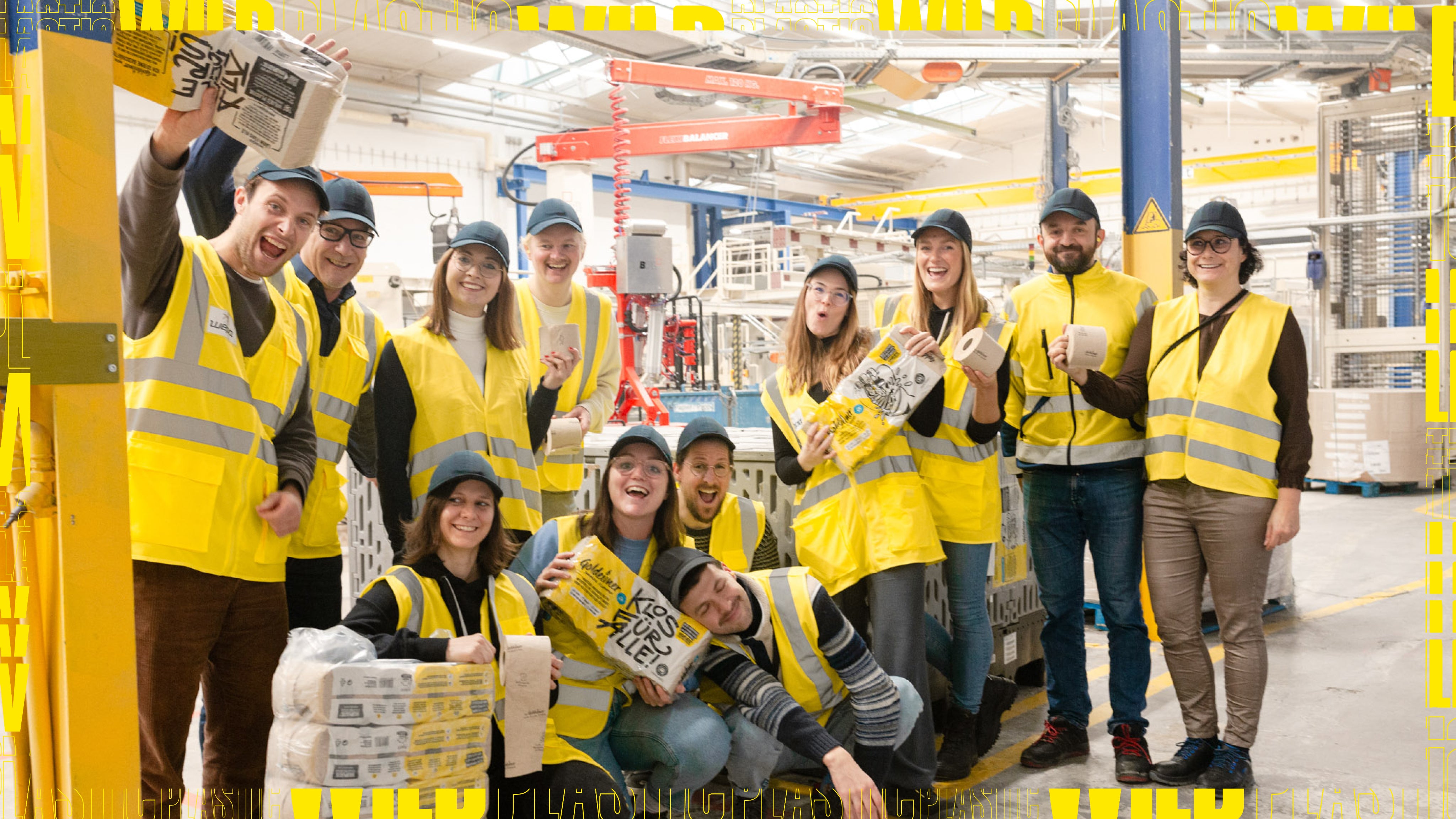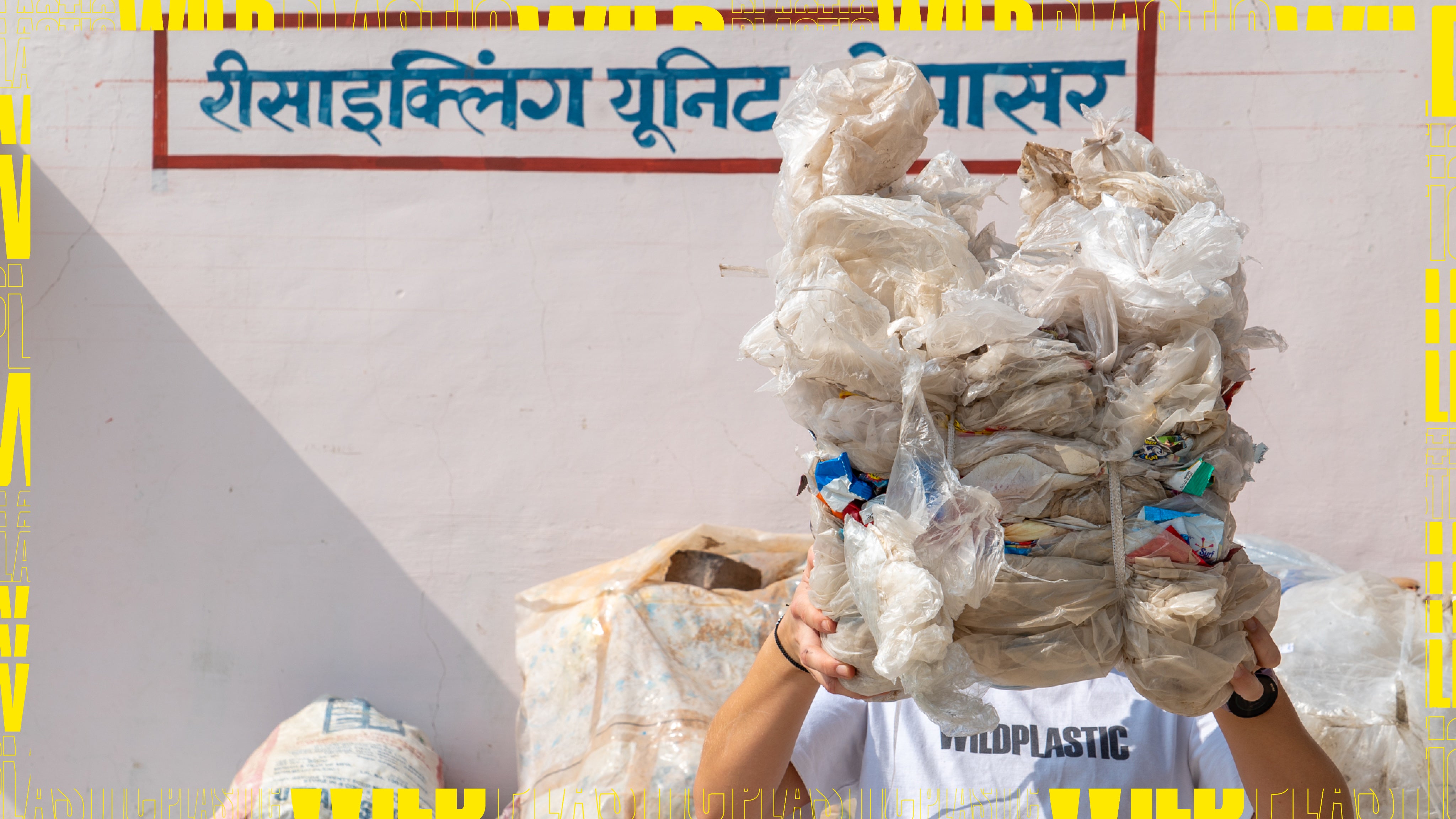During their last trip to India, our Colleagues Maiju and Ronja visited the state of Kerala in the south of India. There they met Sooraj Abrahams, founder of an NGO who has been active in the waste management sector for the last 14 years. During their conversation, our team learned about how the waste management sector in Kerala works and what are the biggest challenges for people who want to create change within the sector.
Can you tell us a bit about yourself?
Hi, my name is Sooraj, Sooraj Abraham. I am from Kerala, a small state towards the very southern part of India. In fact, I am a teacher by trade. I teach in various colleges. Apart from that, I have the privilege of running an NGO called Plan@Earth. I'm one of the founding members, and we have been working for the environment for the last 14 years right now, primarily focusing on solid waste management, mostly towards plastic recycling.

You have been working in waste management for many years. Could you tell a little bit about the process from collection to sorting?
In our state of Kerala we have this very different model of waste management to the rest of India because thankfully the state has recognized plastic as a big problem and last couple of years a new system has come into play over here where every household in every village, town and city is mandated to collect and keep the plastic that they generate for a monthly collection system.
The monthly collection is done by a women's workforce. They're known as the Haritha Karma Sena. So this is a women's collective for every town and village. There'll be something ranging from maybe 30 women to up to 50, sometimes 70 women. There is a monthly user fee of 50 rupees per household and 100 rupees per shop. So these women get their incomes, their salaries are paid from this money that is collected. It is deposited in a collective bank account owned by these women, operated by these women.
Every household is covered on a monthly basis and they have a collection schedule. And the important thing is that the government mandate is that the plastic that is given to these waste collection women has to be clean and free from food residue. The Haritha Karma Sena are highly valued in Kerala, which is very different from the rest of India.
What are the biggest challenges you are facing working in the waste management sector?
With the recycling industry in a country like India which is a developing economy, price becomes the game changer and one of the biggest challenges because people are very sensitive about price fluctuations. So there you find, that unfortunately, the recycling industry in India is not recognized as a definite stream of supply. It depends a lot on virgin plastic.
The price of virgin plastic decides, which should not really be the case, but it decides the price of recycling. So for example,if the price of virgin plastic dips there will be a plummet in the price of recycling plastic. And it might not be viable for somebody who is, say, procuring or sourcing plastic and then making granules out of it because everything said and done, recycling is not an easy operation at all. There are a lot of dynamics that go into it. There is a lot of hard work that goes into it.
So everybody in the supply chain has to be compensated whether it is people collecting the waste from the households, maybe people sorting it, maybe the transportation of freight charges, everybody has to be compensated. So once you are looking at market fluctuations in price based on the value of virgin plastic everything crumbles and this has affected the industry many times, not just once.
How does the sorting process in Kerala work?
It is all manual work, it's not machines. Very few places in India actually have automated, automatic or say mechanized systems. It's all hand sorted. And because it's hand sorted, there is very little error in fact. So this, once it is sorted and graded, you have very small recyclers to very big recyclers. You have aggregators, you have recyclers. But mostly in every town and village, you'll have at least one recycler who would deal with at least one category. So different products are brought out. But then you don't have a single recycler who would process all these things together. Everyone is looking at one definite category.
So as an NGO that works in plastic waste management, our job is to locate at least 20 – 30 players, different people who would take different grades. And once it accumulates, you need at least a ton or maybe five tons before you can send it over. If it's a small player, you sell the small truck. If it's a big player, you send a big truck with maybe 10 to 15 tons a month. So it depends on what scale you're operating. But yes, we have takers for everything. The only problem is the volatility of the market price keeps changing all the time.

Can you tell us a bit about your current project at plan@earth that we just visited?
We at Plan@Earth work in waste management, we do recycling, not directly, but we link up to forward linkages to recyclers. But apart from that we found that there were some grades of plastic that are very difficult to recycle and because of the same reason there are no takers. Nobody wants those grades of plastic.
A simple example is toothpaste tubes. Everybody brushes their teeth. The problem is the material, it's all laminated. You have aluminum, you have plastic, you have paper sometimes. These things have no offtakers, unless you have huge volumes. But who can accumulate for example 50 tons of toothpaste tubes? So that is when we decided to sit and think about what else we can do.
Plastic can be applied to making an upcycle product because it's durable. It's strong. It's washable. It's lightweight. So then we got a team of workers together to create something of the material. There are no machines involved. It's all handmade. It's cut to proportion. It's woven. There's a lot of effort that goes in to make sure that it's aesthetically appealing, but it has utility as well.
And yes, we've been able to come up with a range of products right now, like different shapes of handbags. Plenty of people are buying and using them, and they all come back with good reports saying that it's very durable. It lasts for years. It's washable, it's lightweight, and it is a fashion symbol as well, indicating that you're going green as well.


So what is your opinion on plastic as a material in general?
„We are not saying that you should not manufacture or use plastic, but we can say that somebody has to take responsibility for it.“
We are not an organization that is against plastic because plastic does have a lot of advantages which you cannot ignore. For example, if you look at medical supplies, sometimes you really have to use plastic, which there is no substitute for. Again, if you are looking at safety elements sometimes like insulation cables, sometimes plastic is a good deal because it saves lives. But when it comes to rampant use of plastic, yes, some things can be done, and we feel that the manufacturers and producers can play an important role over here.
We are not saying that you should not manufacture or use plastic, but we can say that somebody has to take responsibility for it. So if you're manufacturing something and releasing it into the system, you should at least be putting in funds and making sure that the funds are reaching the right people who are processing or collecting back your plastic and putting it to further use. Packaging also is one major area where food and everything that's packaged in plastic, generates a lot of plastic waste at the end of the day.
If you're looking at a can of yogurt, the yogurt would last you probably two to three days, but the plastic would last you for an entity, eternity in fact. We need other options for food packaging. And there are a lot of new options coming up but of course, everything comes with its own carbon footprint. When people talk about shifting to paper or shifting to aluminum, they all come with their own carbon footprint. It's not as if there is something that is absolutely safe except a banana, but then that's made by nature itself. And you can't, man despite all his knowledge and understanding in science and technology, cannot beat the banana or the orange, because it comes with its own waterproof packaging and man has a long way to go before he reaches there.
But I think people are changing. There are shops coming up in different parts of the world that use zero packaging, where you can bring your own package or your own containers. In a nutshell, plastic does have certain advantages. So I think responsible consumption is a very important part of the SDG goals, making sure that it is recycled and the manufacturers should also have a very important stake in making sure that every plastic, every gram or kilogram that they generate and send into the system is collected back and recycled or reprocessed.
What do you think the plastic economy in India will look like in 10 years? And has it changed since you started working in this sector?
I would say India is very much on the right track in terms of plastic waste management because when we started in 2009, that was decades ago. At that time we were the only player in Kerala doing door-to-door waste collection of plastic waste. We were the only people. Nobody knew that we existed, and we had to advertise, we had to talk about our service. But now if you look at Kerala, in just, I don't know, 13 years, every city, town and village has a system that we started. It was replicated. It is our system that is in place and it is working fine.
This is the case of Kerala. In the rest of India it might take a little longer because there are certain social taboos attached with waste management, waste collection, the caste taboo is still there, where people look down upon waste collection people. In Kerala, you don't have that. You find that people are respected for the kind of service that they are given. The Haritha Karma Sena that I talked about earlier, they are very much respected in society right now. I think India is good in terms of recycling because being a poor economy there are lots and lots of people who are willing to make an income out of living out of waste collection, segregation, sorting, selling, scrap dealers are there in every nook and corner.
Another challenge that has come out nowadays is ocean plastic. There is a lot of plastic in the oceans around India because the rivers feed into the oceans and riverside dwellers, they put a lot of trash in the rivers and then the floods come, the rains come, everything washes into the oceans and once it reaches the oceans there is no getting it back because most of it sinks. So our challenge is to make sure it doesn't reach the ocean in fact. If India can do something in those respects, India is on the right track I believe.
A big thank you to Gemcorp Recycling & Technologies and especially to Siddhant Karnani who brought us to Kerala and introduced us to Sooraj Abrahams.
Interview by Maiju Laamanen & Ronja Lamberty





Leave a comment
This site is protected by hCaptcha and the hCaptcha Privacy Policy and Terms of Service apply.